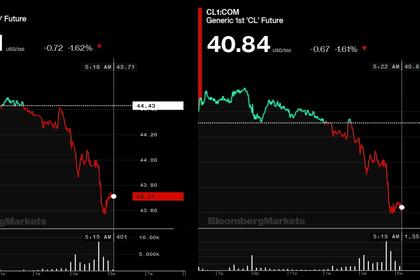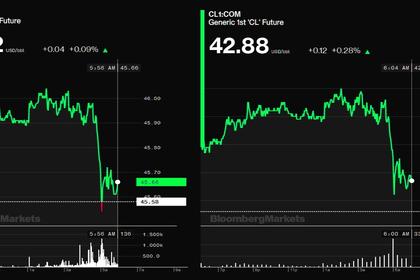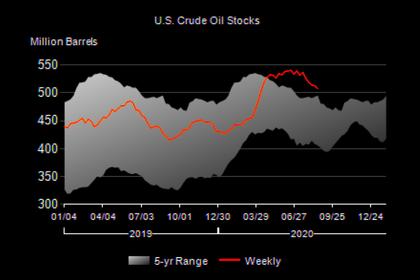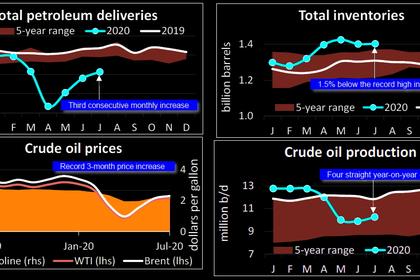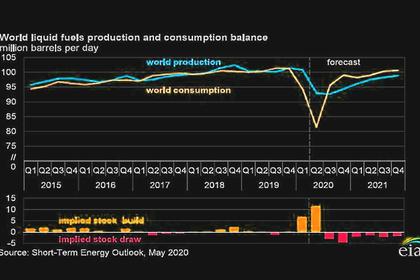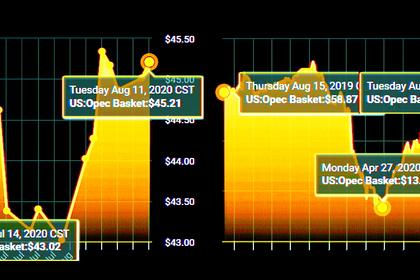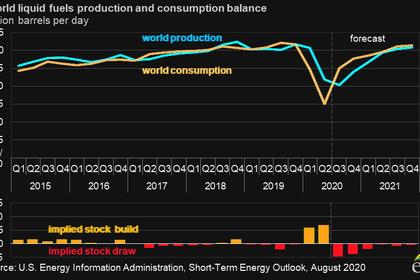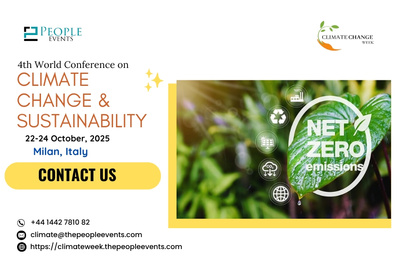
OIL PRICES 2021: $50-$55
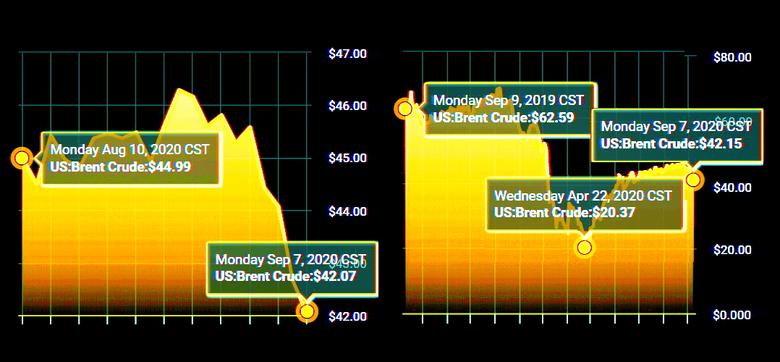
PLATTS - 04 Sep 2020 - The global oil market will remain volatile next year with prices in the range of $50-$55/b as the world continues to recover from the coronavirus pandemic, Russian energy minister Alexander Novak said Sept. 4.
Despite growing stability in the market due to recovery in demand, the consequences of the pandemic would cause "many uncertainties" for the future, Novak said at the virtual Global Manufacturing and Industrialization Summit.
"My forecast is that the average oil price will be $50-$55/b. But we should expect volatility in general," Novak said.
He said the price could reach as high as $65/b at some point next year, but this could cause the global oil market to overheat.
Front-month ICE Brent crude futures stood at $43.17/b at 1545 London time.
Overall, the drop in oil demand this year will stand at 9 million-10 million b/d, he said, adding that the shortfall was being closely monitored by OPEC+ on a monthly basis.
The slump in demand peaked at 25 million b/d in March, but since then OPEC+ output cuts and a slow pick-up in demand have led to a gradual reduction in inventories.
The drawing of OECD oil stocks could bring inventories down to the five-year average in 2021 if the trend continues, Novak said.
"Today the situation is clearer than in April, there are more certainties in the market," he said.
Rise of renewables
The coronavirus pandemic has significantly changed the structure of the global energy mix and put the emphasis on renewables, he said.
"Renewables are being produced at a higher rate now, production volumes increased by almost 5% on the year," Novak said.
The percentage of renewables in the global energy mix by 2040 was now set to be higher at 35%, according to Russian estimates, compared with 26% previously.
However, the role of hydrocarbons will remain crucial, with environmentally friendly natural gas taking a leading role, he said.
Russia, on its part, had decided to extend a government program supporting the development of the renewable energy by 10 more years until 2034, with the aim of renewables accounting for 4-5% in Russia's energy mix, up from about 2% at the moment.
"We have set ourselves the task of extending the renewable energy program for another 10 years, building 10 GW more, and reducing the production cost to make it competitive," Novak said.
-----
Earlier:
